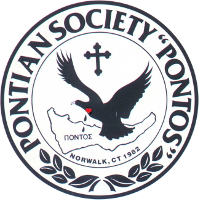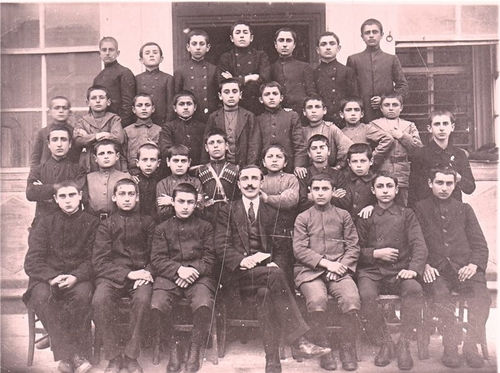The dialect sung by the Greeks who had settled on the shores of the Black Sea since ancient times, and after the last war were forcibly exchanged from the beginning Ionian, and it took great development in Greece where under the influence of the common sung Greek, it succumbed saving few elements of the Ionian.
The dialect has not lost its antiquity to this day, keeping grammatical types from the medieval and Byzantine languages. In its geographical sense, the Pontic dialect no longer exists.
The Greeks of Pontus, descendants of the ancient Ionian settlers who chanted it for millennia, after the exchange of 1922 were scattered throughout Greece. Where they created exactly homogeneous settlements, they were able to keep their ancient lalia, this happened mainly in Macedonia.
Watch our relevant video on the Idioms of the Pontic Dialect
Elsewhere where the Greeks of Pontus created settlements together with other exchangeable Greeks of other regions such as Eastern Romulia and Thrace, they gradually lost their linguistic origin.
Exceptions are the idioms of Ofeos and Tongia, regions of the province of Trabzon, because their Greek-speaking inhabitants, who were descendants of Islamized Greeks, were not exchanged because they were Muslims in religion.
 The Pontic dialect was spoken on the southern shores of the Black Sea and inland Asia Minor. Coastal starting from Inepoli (Ionopolis) to Rizounta and Colchis. From Inepolis to Oinoi the Pontic zone was interrupted by Turkic-speaking populations.
The Pontic dialect was spoken on the southern shores of the Black Sea and inland Asia Minor. Coastal starting from Inepoli (Ionopolis) to Rizounta and Colchis. From Inepolis to Oinoi the Pontic zone was interrupted by Turkic-speaking populations.
The largest hinterland where Pontic was heard was south of Trabzon, Gemoura, Matsouka, Santa, Kromni, Chaldia, Argyroupoli, Herroiana.
Pontic was also spoken in various Matentzid parishes such as Gumus Maden (south of Sinop), Ak Dag Maden (north of Aly), Bulgar Maden (in Konya near Taurus), Argana (in Diyarbakir) and elsewhere.
Pontic was spoken by solid older populations but also newer settlers after 1914 in the south and southeast of Russia, ie in the regions of the Caucasus and Kars, Batumi, Mariupol and elsewhere.
The Pontic dialect together with the Cappadocian are the so-called Asia Minor idioms, having similarities with the Cypriot, Dodecanese, Chian, Ikarian, etc.
The words of Italian-Slavic-Albanian origin are missing from the Asia Minor idioms, while the older Latin words are abundant.
They preserved elements of the old Hellenistic common, as well as the medieval language and are thus one of the most ancient modern Greek idioms.
The Pontic dialect due to the extensive geographical space and the lack of communication between its speakers was divided into various idioms by region.
 The main ones are:
The main ones are:
The idiom of Trabzon, Matsoukas, Chaldia and Santas
The idiom of Ofeos and Sourmenon
The idiom of Kerasounta and Tripoli
The idiom Oinois
The idiom of Amisos
The idiom of Inepolis
The idiom of Kotyora
The idiom of Sinope
The idiom of Nikopolis
The idiom of Semeni
SOURCE: kotsari.com

